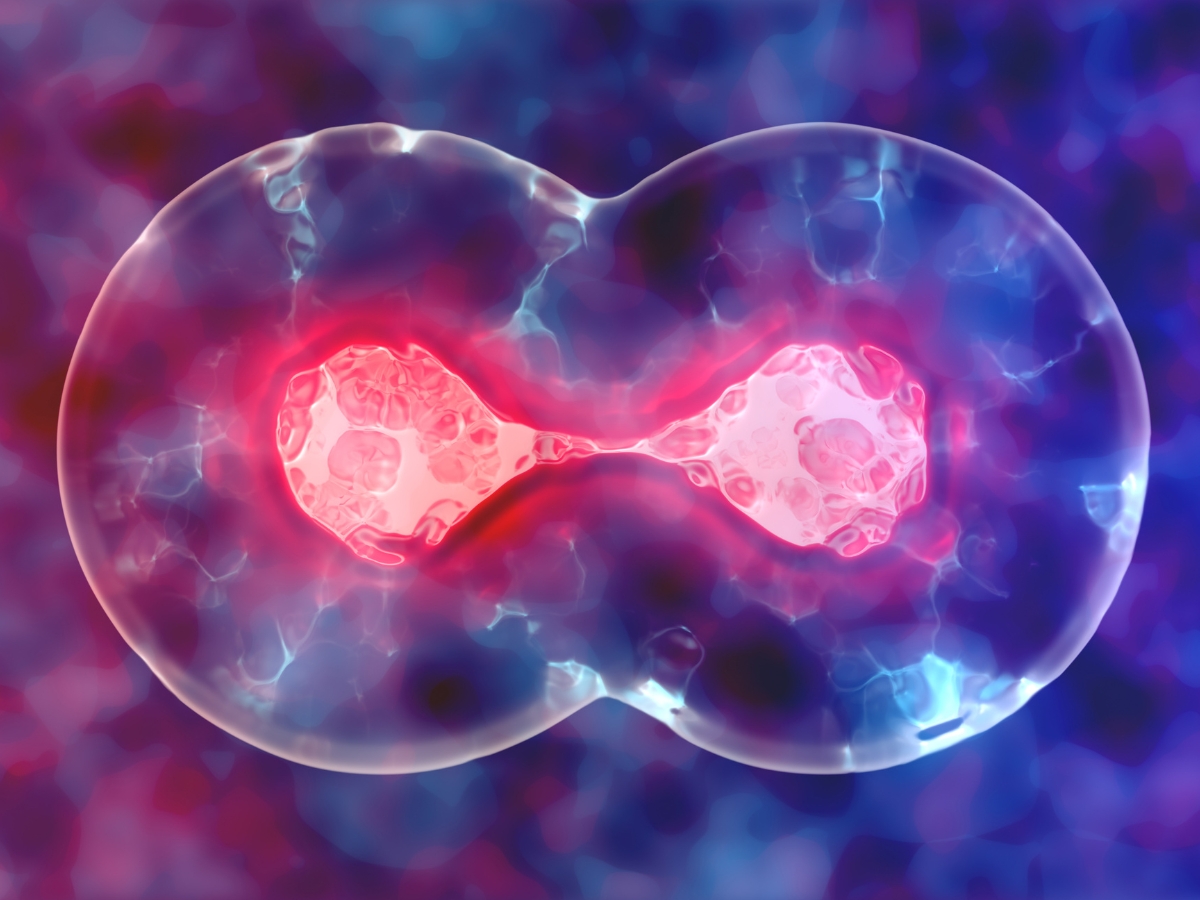All About Stem Cell Therapy: What Is It? & What Are the Benefits?
July 16 2024


Introduction to Stem Cell Therapy
Welcome to this in-depth exploration of how Mesenchymal Stem Cell (MSC) therapy is emerging as a promising treatment for multiple chronic and lifestyle diseases.
In this comprehensive blog, we'll delve into stem cell therapy, understand the potential, and examine how this innovative therapy could offer relief and improve the quality of life for those affected by chronic conditions.
What are Stem Cells?
Stem cells are nature's own builders within our bodies. Often referred to as the body's "natural repair kit," these cells possess an extraordinary characteristic: the ability to remain undifferentiated, waiting for a signal to turn into virtually any type of cell our body may need. There are many different types & different sources of stem cells found in various tissues throughout the body, for example, in the bone marrow, adipose tissue (fat), dental pulp, etc.
Bone marrow or fat-derived Mesenchymal Stem Cells seem to have the best regenerative capacities. Ensuring they are Autologous (sourced from your own body) makes these remarkable cells a safer, low-risk option for addressing a wide range of degenerative health issues. These cells offer ethical and safety advantages and, when activated, can help modulate immune responses and facilitate tissue repair while also promising lifestyle enhancements, neurological benefits, and anti-aging effects.
What Is Stem Cell Therapy?
Stem cell therapy represents a groundbreaking advancement in the realm of regenerative medicine, offering new prospects for recovery and health to those afflicted with a range of medical issues.
This innovative approach harnesses the body's own healing ability, providing potential treatments for conditions that were once considered untreatable. As it continues to evolve, stem cell therapy promises not only to alleviate symptoms but also to address the root causes of diseases, paving the way for transformative health solutions and improved quality of life.
Which Conditions are Treated with Stem Cell Therapy?
Autologous Mesenchymal Stem Cell Therapy offers a promising approach to managing and treating a wide range of chronic and lifestyle-related conditions. Here's how this innovative treatment is making a difference across various ailments:
- Anti-Aging: Everyone desires to age gracefully, and stem cell therapy brings this dream closer to reality. By using your own cells to rejuvenate tissues, reduce age-related inflammation, and optimize cellular function, the therapy helps maintain youthfulness and vitality.
- Type 2 Diabetes: Stem cells have the potential to regenerate insulin-producing beta cells and accelerate wound healing, leading to more stable blood sugar levels. This can mean fewer dietary restrictions and more freedom to enjoy life's pleasures.
- Orthopedic Conditions: By promoting tissue regeneration and collagen production, stem cell therapy strengthens joints and bones, alleviating pain and enhancing mobility, allowing individuals to move freely and spontaneously.
- Autoimmune Diseases: Stem cells help modulate the immune response, reducing inflammation and supporting tissue repair, which can improve organ function and overall well-being.
- Neurodegenerative Diseases: In conditions like Parkinson's and Alzheimer's, stem cells encourage neural regeneration and protect nerve cells, potentially leading to clearer cognition and improved motor functions.
- Cardiovascular Disorders: This therapy can repair damaged heart tissue and encourage the formation of new blood vessels, improving heart function and overall cardiovascular health.
- Liver Diseases: Stem cells aid in liver cell regeneration and reduce fibrosis, which can help reverse the effects of conditions like cirrhosis, leading to enhanced detoxification and metabolism.
- Infertility and Reproductive Health: By rejuvenating reproductive tissues, stem cell therapy can boost fertility and promote hormonal balance, making the journey to parenthood a hopeful and joyful experience.
- Lung Diseases: For conditions like COPD and Pulmonary Fibrosis, stem cells repair lung tissue and decrease inflammation, restoring the ability to breathe more freely and enjoy an active life.
- Pain Management: Stem cells can reduce inflammation and accelerate tissue repair, bringing comfort back into daily life and making physical activity enjoyable again.
- Gastrointestinal Disorders: Therapy can repair the gastrointestinal lining and balance gut flora, offering relief from conditions like IBS and Crohn's Disease, leading to smoother digestion and less discomfort.
This versatile therapy taps into the body's innate ability to heal, offering hope and improved quality of life for individuals facing various health challenges.
How Stem Cell Therapy Work?
Autologous mesenchymal stem cell therapy is a sophisticated form of treatment in regenerative medicine that uses the patient’s own stem cells to promote healing and repair. Here’s an overview of how this therapy works:
- Collection of Cells: The process begins with the collection of mesenchymal stem cells (MSCs) from the patient’s own body. These cells are typically harvested from bone marrow or adipose (fat) tissue, both of which are rich sources of MSCs.
- Processing and Isolation: Once collected, the cells are sent to a laboratory where they are processed. This involves isolating the MSCs from the harvested tissue.
- Quality Control and Preparation: The cultured cells undergo rigorous testing to ensure they are safe and effective for treatment. This includes checking for purity and viability.
- Re-implantation: Once the cells are ready, they are prepared for injection and reintroduced into the patient’s body at the site requiring treatment. This could be a damaged joint, injured tissue, or an area affected by disease.
- Regeneration and Repair: Once administered, the autologous MSCs work by leveraging their inherent ability to differentiate into various types of cells required for tissue repair and regeneration. They also release molecules that reduce inflammation and recruit other cells to contribute to the healing process.
- Long-Term Effects: Over time, these cells continue to foster healing and rejuvenation, potentially restoring function and alleviating symptoms associated with the condition being treated.
This therapy is particularly promising because it uses the patient’s own cells, which reduces the risk of immune rejection and avoids the ethical concerns associated with embryonic stem cells.
How do you choose the Right Centre for Stem Cell Therapy?
Selecting an optimal stem cell therapy center is crucial for ensuring you receive the most effective treatment. When making this decision, several factors come into play, including technology, the source of stem cells, the expertise of the medical team, and cost considerations. Here’s how you can make an informed choice:
1. Advanced Technology:
The quality of technology at a stem cell therapy centre is paramount. Advanced technology not only enhances the precision of stem cell extraction and application but also ensures better handling and preservation of the cells, which can significantly impact treatment outcomes.
Facilities that invest in cutting-edge technology demonstrate a commitment to providing the best care possible.
2. Source of Stem Cells:
The origin of the stem cells used in treatments plays a critical role in the success of the therapy. Stem cells can be derived from various sources such as adipose tissue, bone marrow, or even umbilical cords.
Each source has its advantages and potential applications, so it's important to choose a centre that offers the type of stem cells most appropriate for your medical needs.
3. Experienced Medical Team:
The experience and expertise of the doctors and clinical staff are crucial. Look for centres where the medical team has extensive experience and has handled a significant number of cases.
Experienced professionals are more likely to understand the nuances of stem cell therapy and can provide personalized care based on your specific health conditions.
4. Cost Considerations:
Stem cell therapy can be a significant financial investment. Costs can vary widely based on factors like the type of stem cells used, their source, the quantity of cells administered, the quality of the cells, and the location of the treatment facility.
Prices might range from approximately Rs. 3,00,000 to Rs. 40,00,000 globally. It’s important to note that these therapies are generally not covered by health insurance. Therefore, understanding the cost breakdown and ensuring the therapy offers value for your investment is essential.
Conclusion:
Stem cell therapy, particularly using mesenchymal stem cells (MSCs), is unlocking new possibilities in treating chronic and lifestyle-related diseases. This therapy utilizes the body’s innate repair mechanisms, offering a route to not just manage symptoms but potentially alter the disease course itself.
Choosing the right therapy center involves a detailed assessment of the center's technology, the origins and types of stem cells used, the experience of the medical team, and the overall cost—factors that are crucial for a successful treatment outcome.